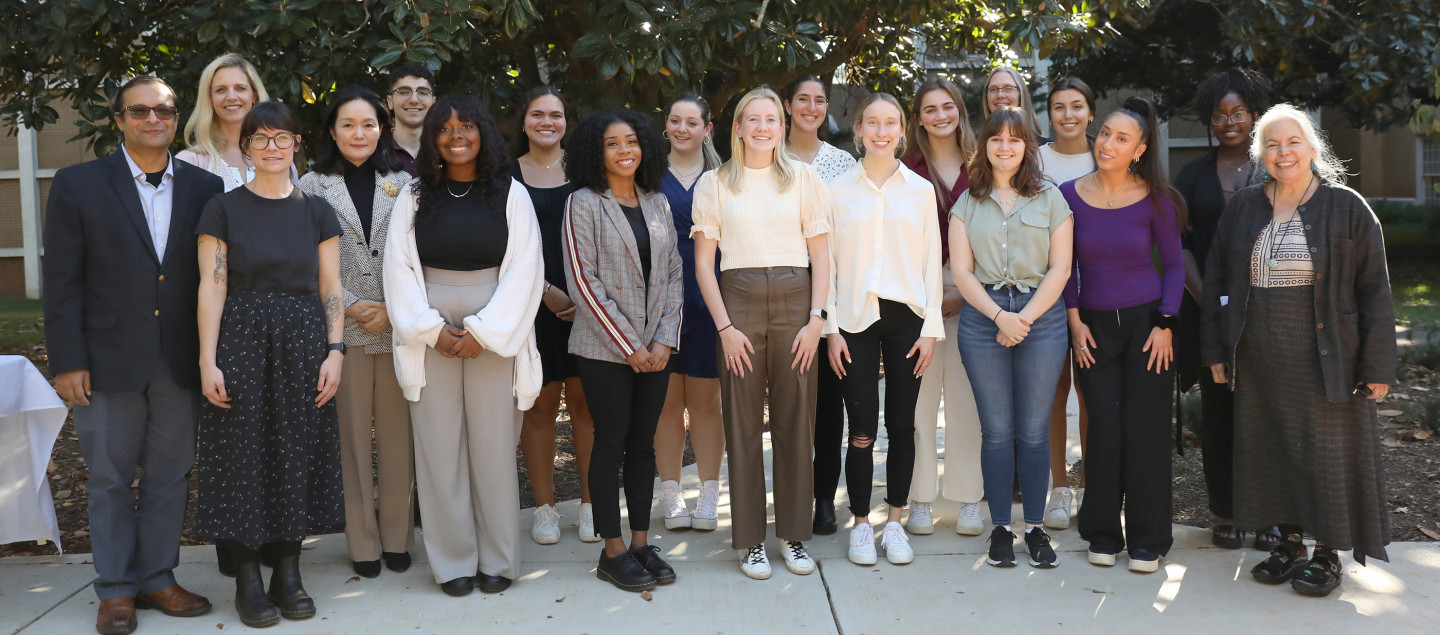We prepare you for a successful career as a registered dietitian nutritionist (RDN), empowering you to lead in your profession and community.
Dietetics is a STEM major focused on the science of nutrition and its critical role in preventing disease and promoting health. RDNs are nationally certified nutrition experts who translate complex science into practical guidance, helping individuals manage conditions like diabetes and heart disease. Our rigorous curriculum blends advanced science, food, and nutrition courses, preparing students for diverse careers in healthcare, sports nutrition, foodservice management, business, research, education, and more.
With growing awareness of nutrition’s impact on health, the demand for RDNs is rising. Learn more about our mission and goals on this page.
Become a Dietetics Double Dawg!
Dietetics students can qualify for the Double Dawg pathway, earning graduate credits during their undergraduate program. Both on-campus and online graduate programs are offered to Double Dawgs, which allow students to complete both their BSFCS degree and MS degree in 5 years or less. The online MS degree is popular among our students because it can be completed alongside a dietetic internship, which is a required step before taking the RDN exam.
Nationally Accredited DPD
The dietetics major at UGA is a Didactic Program in Dietetics (DPD) accredited by the Accreditation Council for Education in Nutrition and Dietetics (ACEND®) for the Academy of Nutrition and Dietetics, 120 South Riverside Plaza, Suite 2190, Chicago, IL 60606-6995, 800-877-1600, ext. 5400.
Pursue the RDN or NDTR Credential
UGA students who successfully complete the dietetics major earn a BSFCS degree and DPD Verification Statement. Post-baccalaureate programs are offered to students seeking a DPD Verification Statement who already hold a bachelor's degree. Obtaining a DPD Verification Statement allows UGA students to pursue the RDN or Nutrition and Dietetics Technician, Registered (NDTR) credentials. To become an RDN, DPD graduates must also complete a minimum of a master’s degree and an ACEND®-accredited supervised practice program before taking the national exam. These programs are available nationwide as either stand-alone or combined. UGA offers combined MS/DI and PhD/DI programs to graduates who have earned their DPD Verification Statement. For more information, visit Become a Registered Nutrition Professional.
State Licensure
To become a licensed dietitian, UGA DPD graduates must complete a minimum of a master’s degree, an ACEND®-accredited supervised practice program, and pass the Commission on Dietetic Registration (CDR) exam for RDNs. Licensure requirements vary by state—view the CDR Licensure Map. In Georgia, licensure is required through the Georgia Board of Examiners of Licensed Dietitians. UGA’s DPD in itself does not include a graduate degree or supervised practice, but we offer strong support and mentoring to help students pursue both. For more information on state licensure, visit UGA Licensure Disclosure Portal and Become a Registered Nutrition Professional.
Policies and Procedures
All DPD policies and procedures—including costs, admission requirements, academic calendar, graduation requirements, and steps to become an RDN or NDTR—are available in the Student Handbook linked on the right-hand side of this page. For questions, contact Dr. Emma Laing, Dietetics Program Director.
What do Registered Dietitians do?
The video below highlights how RDNs use food and nutrition to improve health. Featuring diverse professionals at different career stages, it showcases RDNs working in clinical care, foodservice, sports nutrition, schools, and public health.




